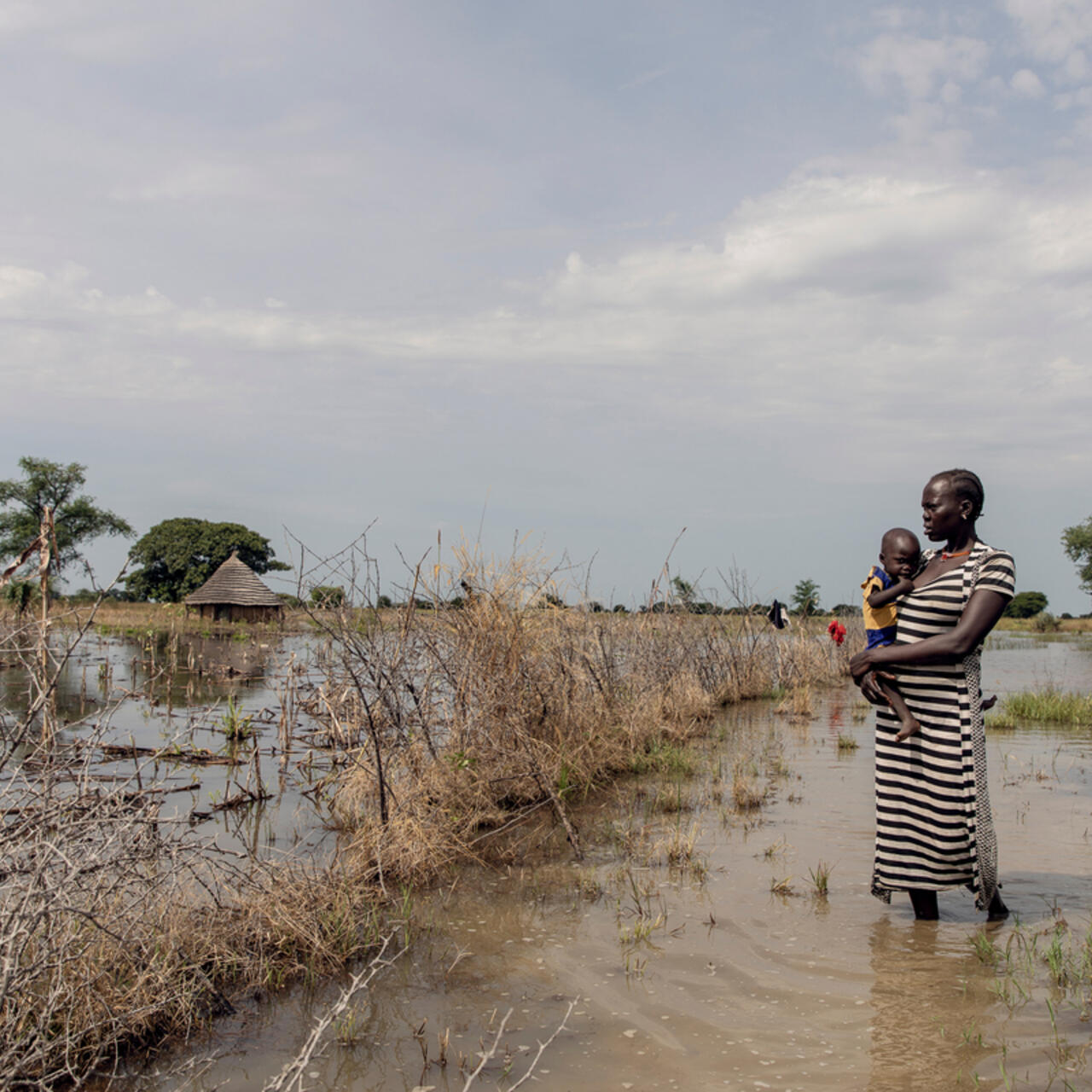
Guardrails against crisis: creating the 2023 Emergency Watchlist
The IRC’s 2023 Emergency Watchlist reveals how the guardrails created to reduce suffering during crises have been weakened or dismantled all together.

The IRC’s 2023 Emergency Watchlist reveals how the guardrails created to reduce suffering during crises have been weakened or dismantled all together.
Each year, the International Rescue Committee (IRC) releases our annual Emergency Watchlist profiling the 20 countries most at risk of experiencing deteriorating humanitarian crises in the coming year.
Grounded in quantitative and qualitative data, as well as insight from the IRC’s work in 42 countries, the Watchlist aims not just to identify which crises are worsening but to pinpoint why and what can be done to help. The 2023 report focuses on the guardrails meant to reduce the impact of these crises on vulnerable people, and how they have become weakened or dismantled.
“Guardrails are the policies, systems and actions designed to limit the impact of crisis on affected communities and to prevent crises from becoming catastrophes,” explains IRC president and CEO David Miliband.
“Guardrails can operate at all levels to mitigate crises, from international institutions like the UN Security Council to diplomatic agreements to local and community-level efforts and humanitarian aid.”
Our analysis serves as a wake-up call and a call to action for global leaders and the public.
Find out more about how we identified the countries most at risk in 2023 and what we can do to solve humanitarian crises.
Behind the IRC’s Watchlist is a scientific analysis that allows us to distinguish where humanitarian crises will worsen and why. IRC Watchlists typically predict which countries experience the worst escalation in humanitarian crises with 85-95% accuracy.
“We understand that every aspect of a country can not be measured by quantitative or qualitative data,” says Marwan Safar Jalani, a global crisis analyst for the IRC who worked on the Watchlist.
“We compare 67 unique indicators with the insights gathered from experts, academics and the IRC’s internal expertise spanning more than 40,000 staff and volunteers.”
A primary goal of the Watchlist is to raise public alarm and offer solutions to the root causes driving humanitarian crises in Watchlist countries.
“We’re working to understand where the world needs to pay attention in the coming year and what the world needs to prepare for,” says Safar Jalani.
“By examining the humanitarian crises most likely to deteriorate and sharing our findings, we galvanise support for the countries that need it most.”
“We take our role as responders to emergency situations seriously,” adds Anastasia Moran, a member of the IRC’s global policy and advocacy team. “The Watchlist helps prepare us to respond in the early stages of a crisis, before the situation becomes a catastrophe."
“The Watchlist helps prepare us to respond in the early stages of a crisis, before the situation becomes a catastrophe.”
In order to support the 339.2 million people in need of humanitarian aid, the international community must work together to address the global issues driving crises. This is how we will restore and strengthen the guardrails meant to protect vulnerable people around the world.
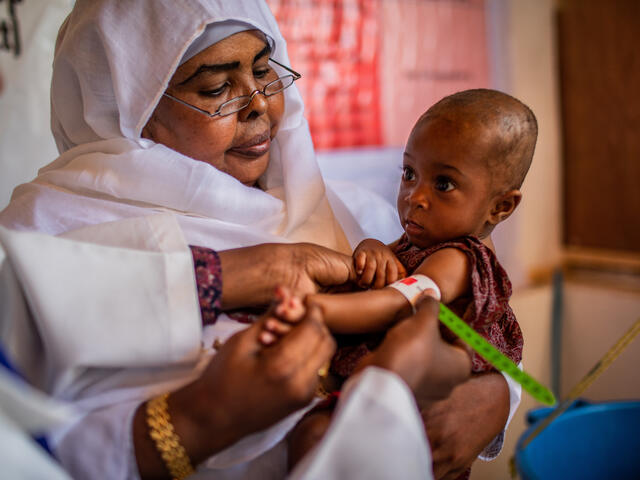
This year the IRC highlights the importance of local, national and international guardrails designed to protect vulnerable people around the world, particularly in Watchlist countries. These guardrails do not necessarily end crises, but they can dramatically lessen human suffering.
“Guardrails are actions, policies and mechanisms which prevent crises and minimise humanitarian needs,” explains Safar Jalani.
Guardrails can protect vulnerable people at all stages of crisis - a single guardrail shouldn’t be counted on to protect everyone. For example, access to social services like healthcare can act as a preventative guardrail that prevents a humanitarian crisis from breaking out in the first place.
Even when crises have erupted, guardrails like cash assistance and food aid can minimise their impact. In some cases, the guardrail of diplomacy is needed to end conflict, while international law can act as a guardrail to hold perpetrators accountable.
For many Watchlist countries, importing grain from Ukraine was a final guardrail against catastrophic food insecurity. “In Somalia, continued conflict and a drought fueled by climate change limited the ability to produce food locally,” says Safar Jalani. “So when the war in Ukraine prevented the export of grain shipments, many Watchlist countries like Somalia, which imports 90% of its grain from Ukraine and Russia, slipped deeper into a humanitarian crisis.”
Several guardrails were successfully implemented in 2022.
“Examples include the UN-brokered six-month truce in Yemen which led to an 86% drop in fatalities and the Black Sea Grain Initiative which allowed more than 12 million tons of food to be exported from Ukraine to lower-income countries suffering the worst effects of the global food crisis,” explains Moran.
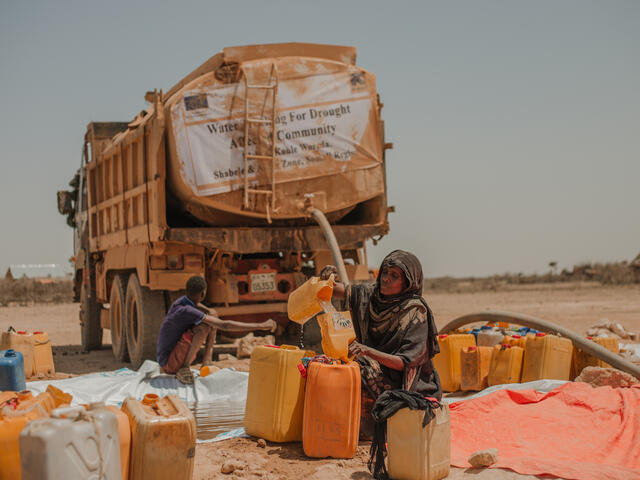
Watchlist countries have experienced armed conflict for eight of the last 10 years, on average. They also accounted for 89% of all civilian fatalities in 2021, and 81% of people who have been forced to flee their homes.
“More than 100 million people are now displaced around the world,” says Safar Jalani. “According to the UNHCR, this is the highest number of displaced people ever recorded.”
Conflicts often destroy the infrastructure and services that can save lives when crises strike.
“Not only does conflict have immediate consequences for civilians, it also affects countries in the long term,” explains Safar Jalani. “Conflict destroys guardrails and makes it difficult for humanitarians to provide aid to those in need. The threat of potential conflict alone can prevent countries from receiving aid or investments.”
Data shows that wars are lasting longer on average and are spreading to new regions quicker than before. A key driver of this trend is the growing number of “internationalised internal conflicts,” where at least one outside country contributes troops to internal fighting in another.
Safar Jalani explains. “Global powers are taking advantage of local conflicts and tensions. They fuel war in other countries to achieve their own political objectives at home, making conflicts longer and more deadly.
The spread of conflicts also increases political tensions between countries, making it difficult to negotiate peace settlements or solutions to global challenges like climate change. With diplomatic guardrails weakened, the international community loses valuable tools to keep civilians safe.
Despite contributing just 1.9% of global CO₂ emissions in 2019, Watchlist countries are vulnerable to some of the world’s most intense climate disasters. This year, flooding affected 33 million people in Pakistan while severe drought continues to contribute to catastrophic food insecurity in East Africa.
For Watchlist countries, climate shocks pose a threat to the guardrails meant to provide emergency support to people in crises. They also reduce their ability to prepare for future climate-fueled disasters.
“Overall, the world is becoming more prepared to deal with climate shocks, but this isn’t true in Watchlist countries,” says Safar Jalani.
“Countries on the Watchlist don’t have enough resources to deal with the immediate concerns of their citizens and invest in preparing for future climate shocks.”
Wealthy nations have pledged to help countries on the Watchlist prepare for future climate shocks through funds marked as “climate financing.” However, promises to distribute these funds have fallen short by tens of billions of dollars, leaving many Watchlist countries underprepared.
This is especially true for countries experiencing conflict, which in 2020 received just a third of the per capita climate change financing of countries without active conflict. This trend leaves nations like Ethiopia, which is experiencing prolonged conflict and climate-induced drought, without the support needed to strengthen guardrails and protect its citizens.
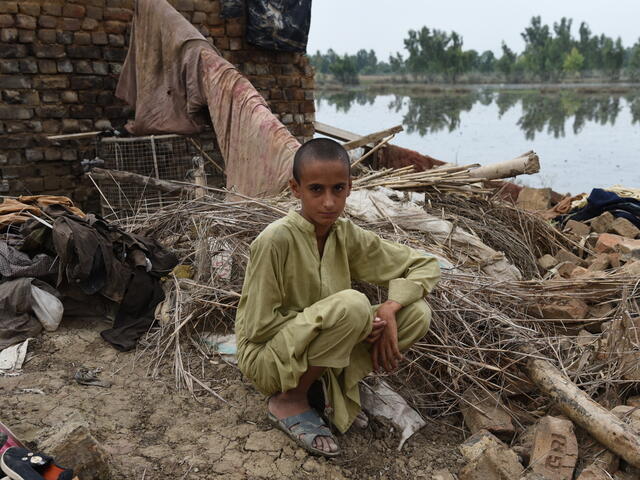
The escalation of the war in Ukraine and the long-term impacts of the COVID-19 pandemic sent economic shocks around the world, increasing global food prices. The effects have been felt most severely in Watchlist countries, where markets have collapsed and food shortages have made it difficult for many to find enough to eat.
“In 2022, Watchlist countries saw an average of 39.7% inflation in food prices, double the average rate in non-Watchlist countries [19%],” says Safar Jalani. “One hundred percent of people suffering from catastrophic food insecurity, the most severe category possible, live in Watchlist countries.”
When wealthy countries face rising inflation, they raise interest rates to attempt to slow it. But, hikes in interest rates in more developed countries depreciate the weaker currencies and push inflation higher in several Watchlist countries.
The economic crisis is particularly extreme in Afghanistan, which has faced economic collapse and growing poverty since the change in power in August of 2021.
“We had nothing at home, neither firewood nor food. Everything was very expensive,” says Aalia*, an Afghan mother who received cash assistance from the IRC. “Last year a liter of oil cost 1,500 Afghanis, now it costs 3,000."
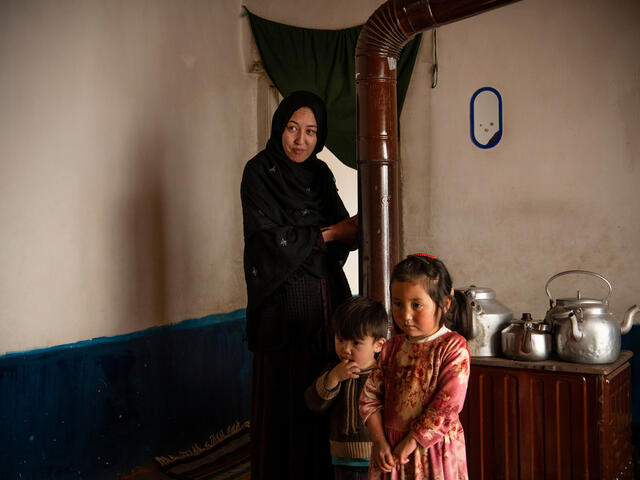
The IRC’s Watchlist not only identifies and explains why humanitarian needs are growing, it also offers solutions. In order to address the underlying causes of crises, we must rebuild critical guardrails in Watchlist countries.
Moran is optimistic that the Watchlist will inspire leaders to work together to limit the severity of humanitarian crises in 2023.
“I hope donors don’t retreat from their foreign-aid commitments, that the massive outpouring of support for Ukraine is also shown to other countries on the Watchlist. And I hope that over the next three to six months, governments prioritise Watchlist countries and work to prevent worst-case scenarios before it’s too late."
The international community treats crises as short-term problems and has failed to address the underlying causes driving humanitarian needs. This leads to more spending on emergency responses and a perception that humanitarians are the final guardrail against state failure. So how do we confront these issues?
“The first step is breaking the cycle of crisis,” explains Moran. “We need to recognise that humanitarian crises require more than just aid. Humanitarian crises are political crises, they’re economic crises, they’re developmental crises and they’re security crises.”
We need to address the underlying causes of crises, not just the symptoms.
One of the most pressing issues in Watchlist countries is extreme hunger. “Six countries on the Watchlist are at risk of famine,” says Moran. “We could soon be seeing the first famine declaration in five years. Famine prevention must be a top priority in 2023.”
To address this issue, the international community must change its approach. Organisations like the U.N. Task Force on Preventing Famine should target countries most at risk and mobilise support before famine conditions are reached.
“If mobilisation starts once a famine has been declared, it’s already too late. By that point, a huge number of lives have already been lost,” explains Moran.
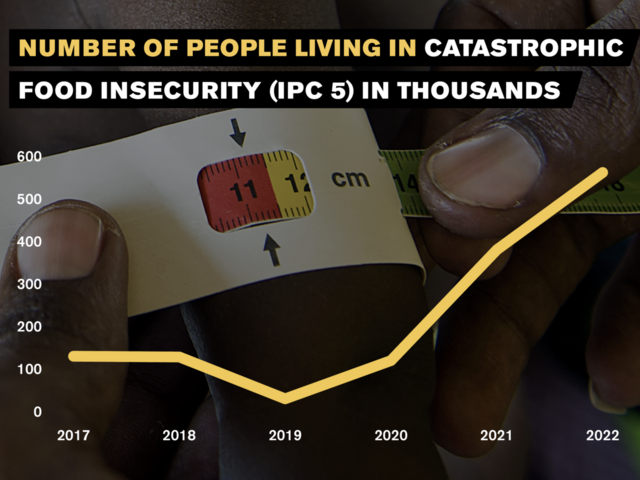
This lesson can be applied to other humanitarian crises. Donors should increase aid to fragile and conflict-affected countries to prevent them from deteriorating into failed states. Failed states are characterised by a collapse of guardrails and the government, which makes it extremely difficult for people to access basic services or meet their essential needs.
Aid to these countries could ensure that there is funding for basic service delivery, including water and health services as well as education, which currently only receives 3% of all aid funding.
The international community has established rules of war to safeguard civilians in times of conflict. However, failure to enforce these rules has eroded protections and left civilians increasingly vulnerable.
Actors committing crimes against international humanitarian law must be held accountable for their actions. The Watchlist calls for the U.N. Security Council to limit the use of veto power by the five permanent members (U.S., Russia, U.K., China and France) in cases of mass atrocities. By agreeing to not use their veto power in these circumstances, the Security Council would be able to hold perpetrators accountable and take a first step toward easing gridlock.
The international community must also address actors and conditions that do not allow humanitarian workers to access regions where people need lifesaving aid.
“We are seeing a growing trend where parties to conflicts are operating with impunity,” says IRC President and CEO David Miliband.
They are pummeling civilian infrastructure, weaponising lifesaving aid, blocking IRC staff and other humanitarians from reaching populations in need. Nearly 40 countries, including every single Watchlist country, are experiencing high to extreme constraints on humanitarian access.
Organisations delivering aid are often unable to speak out for fear of retaliation but it is time to take a stand. The IRC calls for the establishment of an independent organisation that can act as a watchdog and report on challenges that prevent the distribution of humanitarian aid.
Throughout the entire peacebuilding process, from preventing violence to recovering from conflict, women must be empowered and involved. This includes greater funding to women-led organisations tackling issues at the heart of rising violence, as well as women’s inclusion at the negotiating table to make solutions accountable to the wider community.
Critically, their participation makes solutions more durable; when women are included in forming peace accords, there is a 35% higher chance the resulting agreement will last for at least 15 years.
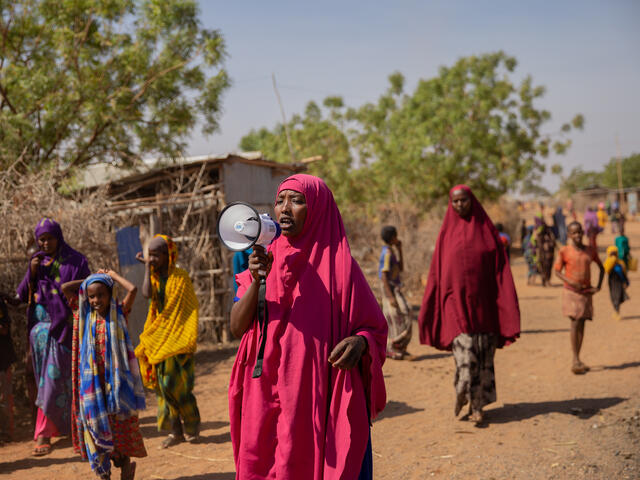
Global issues such as climate change, mass displacement, pandemics and economic turmoil require global solutions. Unfortunately, many countries are turning inwards at a time when international cooperation is key.
“Fragile and conflict-affected states least responsible for climate change are being hit hardest right now,” explains Moran. “We all benefit from making progress on global issues like climate change. The entire international community should dedicate more resources to tackling collective issues.” The Watchlist calls for wealthy countries to meet their promise of delivering $100 billion in climate financing to lesser developed countries.
This financing should not ignore countries experiencing conflict. Deep analysis of the unique climate risks countries face should inspire tailored responses and ensure that no country is left behind.
In addition, global support must embrace the over 100 million people displaced worldwide. “What happened in Ukraine, while not perfect, is a model of the welcoming response and support we should be demanding for people experiencing the same hardships in other parts of the world,” says Moran.
“People are being displaced in Somalia, Yemen, Afghanistan, the Democratic Republic of Congo, but these crises are getting a fraction of the support.”
The Watchlist calls on donors and international financial institutions to scale up their support for displaced people around the world.
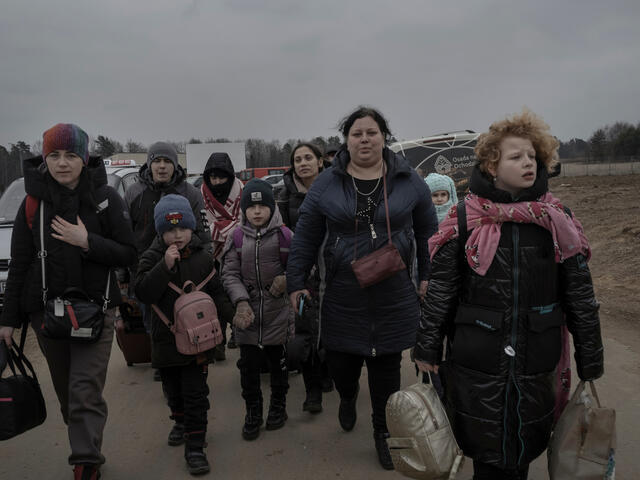
The Watchlist also urges action to be taken to “pandemic-proof” the world, to prevent or mitigate the health, economic, social, security and political repercussions that a disease like COVID-19 can unleash on the world.
To prepare for future pandemics, the international community must monitor, mobilise and confront new outbreaks quickly. The Watchlist supports calls for the establishment of a Global Health Threats Council and encourages the International Monetary Fund to regularly assess member countries’ pandemic preparedness and response plans.
Find out more about the countries featured on this year’s Watchlist. You can also read the full 2023 Emergency Watchlist here.
In the face of conflict, climate change and economic turmoil, the IRC stands committed to rebuilding guardrails in Watchlist countries. We deliver lifesaving aid in more than 40 countries around the world, providing clean water, emergency medical care, education, protection services and much more.
*Last names excluded for privacy
Consider donating to the IRC to support our work in Watchlist countries and around the world.